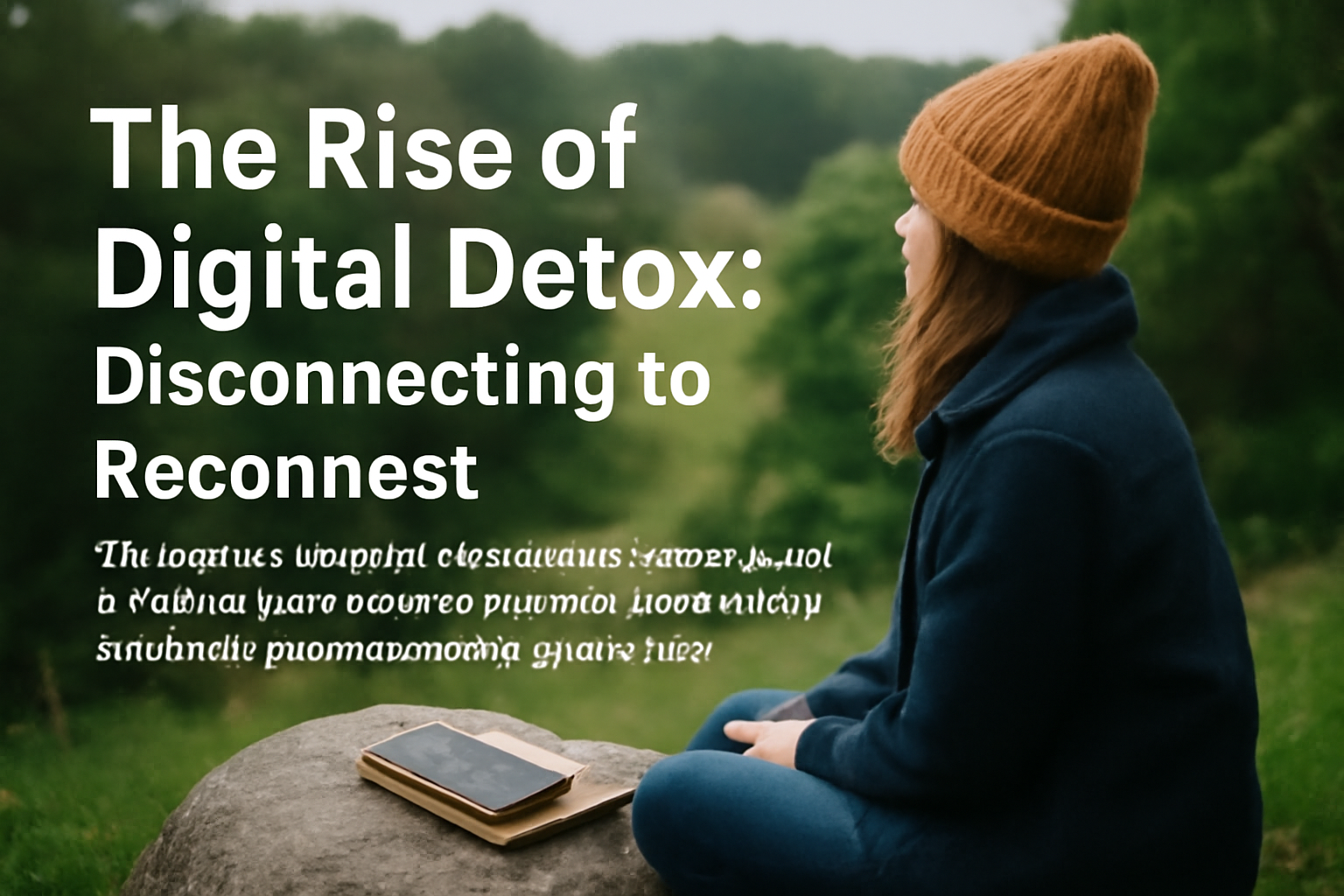Location
Mount Vernon, WA 98274
Location
Mount Vernon, WA 98274

As technology continues to permeate every aspect of our lives, a growing number of individuals are seeking refuge from the digital noise through offline experiences. This article explores the cultural phenomenon of digital detoxing and its impact on personal well-being and community connections.
In an era where our lives are increasingly intertwined with technology, a counter-movement is gaining traction: the digital detox revolution. With the rise of smartphones, social media, and constant connectivity, many individuals are beginning to recognize the mental fatigue and anxiety that accompany an always-on lifestyle. As a result, they’re consciously choosing to unplug and embrace offline experiences, leading to a cultural shift that prioritizes well-being and genuine human connections.
Recent studies highlight the effects of excessive screen time on mental health, revealing that individuals who engage in regular digital detoxes report reduced stress levels and improved overall mood. A survey conducted by the American Psychological Association found that 61% of respondents felt overwhelmed by the barrage of notifications and online interactions. In response, people are not just taking short breaks; they are committing to intentional periods of disconnection.
This trend is not just about abandoning technology altogether but finding a balance that allows for mindful consumption of digital content. Many individuals are adopting practices like tech-free weekends, where they engage in activities such as hiking, reading physical books, or participating in workshops that foster face-to-face interactions. These experiences often lead to deeper connections with friends and family, as well as a heightened sense of presence in the moment.
Additionally, the wellness industry has begun to capitalize on this movement, offering retreats and workshops focused on digital detoxification. These events encourage participants to step away from their devices and immerse themselves in nature, art, or mindfulness practices. For example, retreats in serene locations like the mountains or coastal areas incorporate activities such as yoga, meditation, and journaling, all designed to cultivate a sense of peace and clarity away from screens.
Another aspect of this cultural phenomenon is the rise of ‘slow living’, a lifestyle choice that emphasizes quality over quantity, both in terms of consumption and experiences. People are increasingly prioritizing sustainable practices, opting for local products, and engaging in community-focused activities. This shift towards intentional living complements the digital detox movement, as individuals seek to simplify their lives and be more present.
As we navigate a world dominated by technology, the digital detox revolution serves as a reminder of the importance of balance. By embracing offline experiences, individuals can reclaim their time, enhance their mental health, and foster deeper connections with the world around them. In this age of hyperconnectivity, the choice to unplug can be a powerful act of self-care.